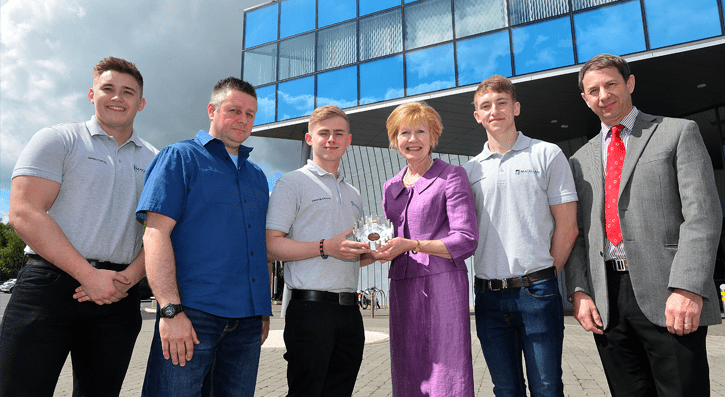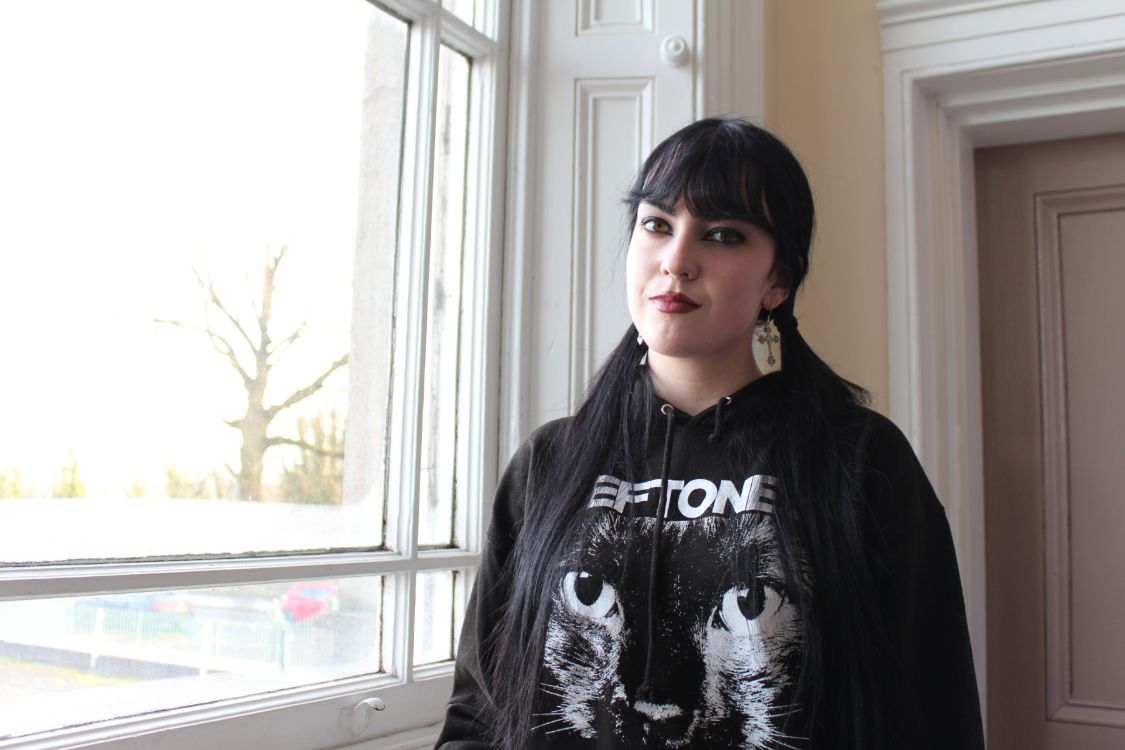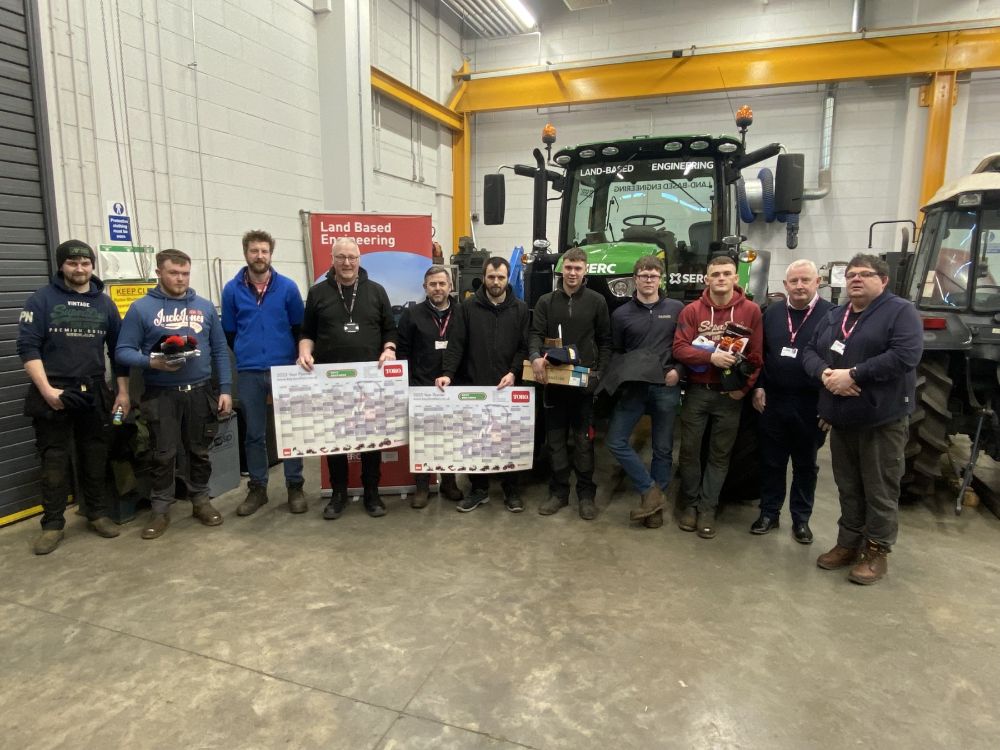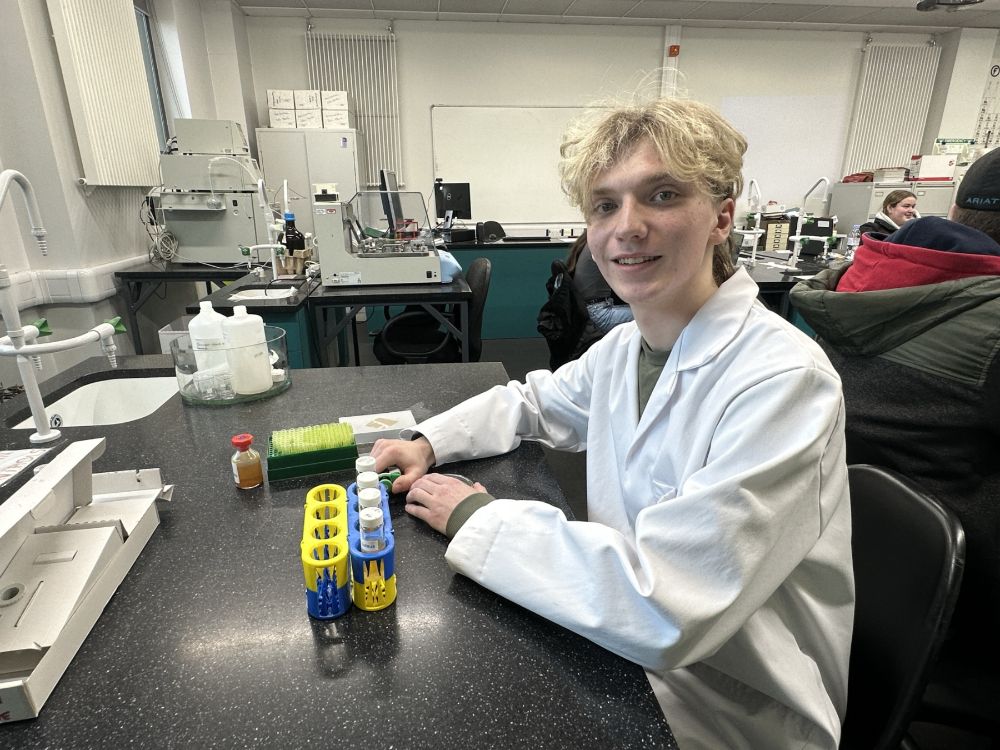SERC Engineering Students' project ANCPOS featured in Quay Issues Magazine
0 min read
10 January 2019

Congratulations to SERC’s Level 3 Manufacturing Engineering apprentice students who recently featured in December’s issue of Quays Issue magazine. This article highlighted the importance of their project, ANCPOS in reducing the amount of warp related injuries onboard fishing vessels.
Their project titled, “Advanced Numerical Control Panel Operating System” (ANCPOS), focuses on replacing fishermen manually having to count warp windings and operating winches. This is potentially a very dangerous action if the winch snaps because crew members would find themselves directly in the path of the recoiling warp.
The quartet of talented engineering students who come from across the Ards Peninsula (Jake Walker, Cameron McKee, Daniel McClements and James Coffey) along with a project team consisting of members from the University of the Third Age (3UA) and SERC Engineering lecturers, created a device that could instead accurately calculate the length of the cable that has been released or retrieved when fishing.
As a result of using this device, the fishermen wouldn’t have to stand in a dangerous position to measure the cable as they could read it on an electronical display.
To download a copy of the feature of the article please click here
To hear more about this innovative project, see below for the full article from Quay Issues:
Advanced Numerical Control Panel Operating System (ANCPOS)
“Counting warp windings and operating winches manually puts crew members on the aft deck in an extremely dangerous position” says Duncan McIlroy, a retired MCA fishing vessel surveyor. “If it snaps, crew will be directly in the path of the recoiling warp.”
Accidents involving snapped warps are amongst the most horrific in the fishing industry. Despite the dangers, accurately measuring warps is key to efficient net operation: release the wrong length and the trawl doors won’t spread the net properly. Duncan is part of a team in Northern Ireland developing computer technology to make the use of winches easier and safer for fishermen. Quay Issues caught went to Northern Ireland to find out more about the project.
The Advanced Numerical Control Panel Operating System (ANCPOS) project is led by Daniel McClements, Cameron McKee, James Coffey and Jake Walker from Portavogie. Apprentices at Magellan Aerospace and students at the South Eastern Regional College, the team are all studying for their BTEC Level 3 in Manufacturing Engineering.
From a fishing family himself, Daniel McClements told us how his experience of the fishing industry helped inspire the project. “Every summer I worked on my dad’s boat, MFV Golden Ray (B953), a twin-rig prawn trawler fishing in the Irish Sea. Working with the winches and measuring the cables as they leave the boat is one of the most dangerous roles on board”
In the aerospace workshop, the team uses Computer Numerical Controlled (CNC) milling machines, a machining process for making very precise cuts. The team realised they could apply computer numerical control to winch operation, as Daniel explains, “We took inspiration from the CNC machines we use at work. The type of technology used in these machines could be used to track the rotation of a winch and calculate the length of cable being used. This would allow the winch to be used remotely and cables measured more accurately.”
The project team designed a device that could be used on fishing boats, as Daniel went on to say, “Our aim was to build a device that could be fitted to any fishing vessel winch to remotely monitor the length of cable that has been released or retrieved when fishing. This means that crew members won’t have to stand in a dangerous position to measure the cable. Instead, they will get readings on an electronic display.”
College lecturers Kelvin McGreeghan, specialist in CNC milling, and Darren Anderson, an electrical engineer, also joined the team, providing advice and expertise from their specialist fields. In 2017, the team was awarded an enterprise award from their college.
The college invited a team of mentors from the University of the Third Age (U3A), a volunteer-led organisation offering educational and leisure activities to people no longer in full-time work. Adrianne Brown, lead mentor and one of the enterprise-award judges, says, “I was extremely impressed with the quality of the work and the enthusiasm of the students. My family have a history of fishing, so it was a project I was very interested in. We brought together a team of mentors, all very interested in the concept.”
With experience in electrical engineering, business and marketing, the mentor team has brought a range of skills to the table. Student Cameron McKee says they have learned a lot from the experience and Jake Walker adds, “Meeting the mentors and learning from them has been a great experience.”
The student engineers secured funding of £1,000 from the Northern Ireland Fishermen’s Safety Forum and the Northern Ireland Fish Producers Organisation (NIFPO), which enabled them to build a prototype of the instrument. A key aim was to develop a device that could be retrofitted to any vessel winch. As the team’s lead tutor Kelvin McGreeghan explained, “We wanted to create something that any fisherman could fit easily to an existing winch, rather than having to replace the entire winch, which could cost the skipper tens of thousands of pounds.”
In August 2018, the first sea trials of the device were carried out on board Daniel’s family boat, the twin-rigger Golden Ray. Fitted to one drum of a winch on board the vessel, the instrument monitored the warps on every tow over a four-day fishing trip.
Early results proved its success, but more trials are due and the team members want to guarantee the device has a long lifespan. Kelvin explains, “After sea trials, we will be back to the workshop, analysing data and making changes to the device to make it more functional. If the next sea trials are successful, we’ll turn our attention to making sure the device is durable enough to withstand the conditions on a fishing boat for years at a time!”
Despite the challenges of creating a functional, durable and cost-effective device, the developers remain focused on their goal. “Ultimately the team’s aim is to make fishing safer”, says Daniel. “Working with winches is always going to be a risky job; we want to do what we can to minimise these risks and hopefully make things safer for the fishermen who work in these situations every single day. There’s a lot of work to do, but we have a great team to help us!”
The fishing industry is supported by a network of hard-working innovators with a huge range of knowledge and expertise. The ANCPOS team show commitment to pooling skills from across generations and harnessing new technologies to help the fishing industry overcome the dangers they face every day.



